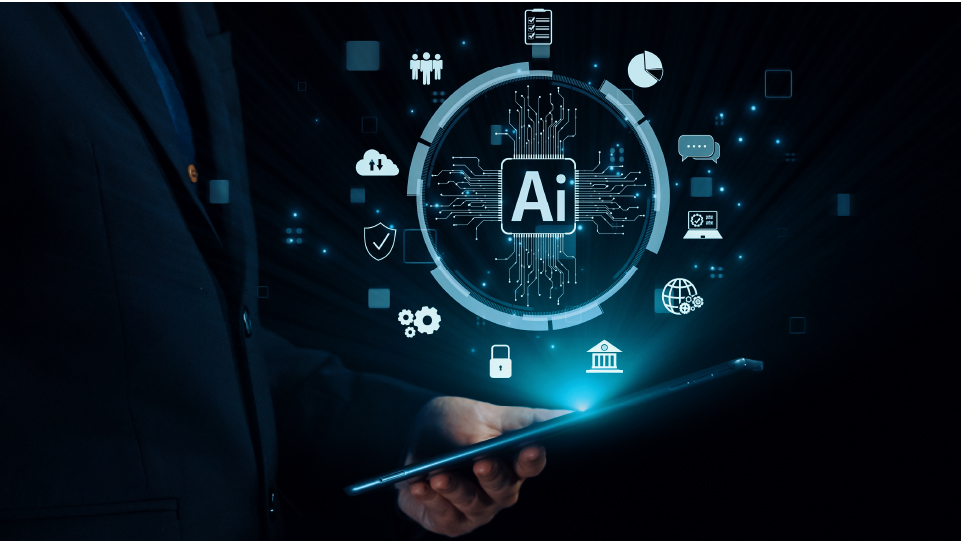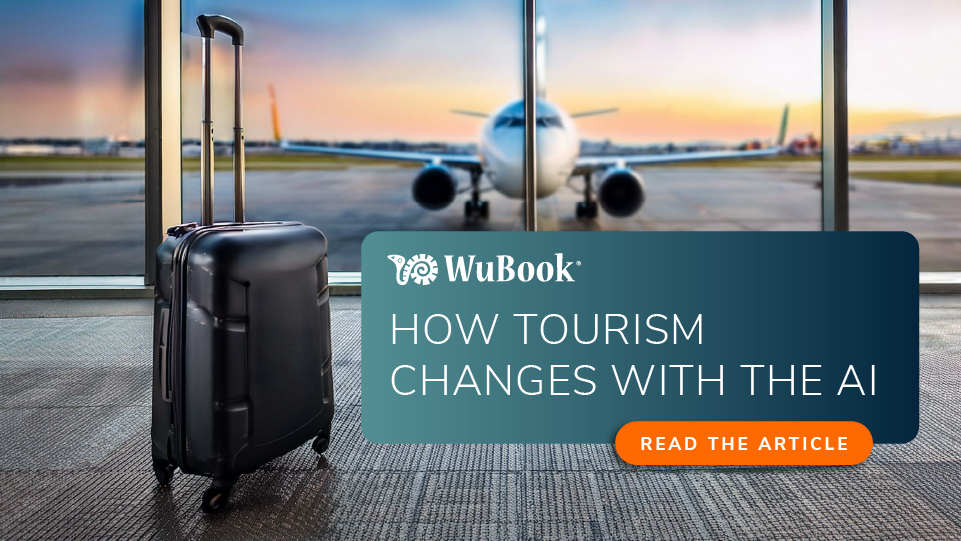Dear WuBookers, among the most promising digital innovations in recent years for those working in the tourism industry there is Artificial Intelligence (often abbreviated as AI). There are many possible applications and the turnover predictions are quite optimistic: let’s see what it is and what advantages it offers.
What is artificial intelligence
Before going into the practical aspects of the matter, let’s review the basics and also make a few distinctions. Artificial intelligence is a rather broad field that includes various types of AI, including, for example, generative AI and Large Language Models (LLM).
In general, AI consists of a series of systems that, using automatic learning techniques such as machine learning and deep learning, perform actions normally carried out by human intelligence. Thanks to a series of advanced algorithms, AI is able, for example, to recognize images, solve complex problems and reproduce natural language.
Generative artificial intelligence, however, is a specific type of AI capable of generating original content from a dataset. This can be text, images or sound.
Finally, the Large Language Model is a model trained on a huge language database. A famous example of LLM is GPT, developed by OpenAI to produce texts that mimic natural language from prompts, or commands, given by human beings.
It is clear, then, that when we talk about AI we are actually referring to a variety of artificial intelligences, employed to perform operations to analyze and/or create new content. A variety that makes these solutions extremely versatile and attractive even for the hotel industry.

5 possible applications of AI in the tourism sector
According to a recent study by the Digital Innovation Observatory of the Polimi School of Management conducted on a sample of 1021 large and very large European companies, the Netherlands, the United Kingdom and France are the countries where artificial intelligence is most prevalent. The European average of companies that have invested in AI and already have an active project is 69%, but the numbers drop if you look at SMEs, in which most of the tourism companies in different areas, such as Italy, fall. Yet, the potential of these technologies is enormous.
In fact, the information portal Digital Agenda reports data from McKinsey’s “The state of Tourism and Hospitality” report of 2024 that those who have implemented AI for reservation automation and data management have experienced an average increase in profits of 20% and a decrease in operating costs of 15%.
But this is just one of the tasks that can also be successfully entrusted to AI in the hotel industry. Here’s what it can be useful for:
- Tips and personalized experience
For travelers, receiving personalized recommendations is no small plus. By analyzing travelers’ online behaviors, artificial intelligence algorithms can suggest destinations, accommodations, activities, places of interest, restaurants and more.
The hotel itself can take advantage of these applications to come up with customized plans and give a unique experience to each guest, inside and outside the hotel. The information can be used, for example, to arrange the room in a certain way or to propose tailored tour packages, or even to work out individual tasting menus cut to the guest’s tastes.
- Predicting demand and keeping supply up to date
Revenue management systems take advantage of AI’s ability to process large amounts of data to predict market trends and update the hotel’s price list accordingly. These are advanced programs that maximize profits and reduce operating costs, as we saw just above, but – precisely because of this – they must be adopted in structured settings.
For smaller realities or those with little history behind them, a Yield Management system, such as the one integrated within Zak, the hotel management system by WuBook, might be sufficient. Thanks to this particular feature, in fact, the hotelier can collect reservations data, formulate a forecast of trends with respect to the season, and manually set the rules for changing prices. By doing so, rates will update dynamically according to the parameters set (however, they can always be changed), easing the work of planning and management. In fact, Zak allows you to increase or decrease your rates automatically, based on how the availability of your rooms varies and the reservations you receive.
- Chatbots for online conversation management
Speaking of workload, the adoption of a chatbot on the facility’s website – operated by AI – can also reduce staff uptime. In this case, the auto-responder can understand online users’ requests and direct them to the best solution, answer frequently asked questions, and solve problems related to operational or language misunderstandings.
This is also a highly appreciated service by customers, who can contact the bot at any time, with no waiting time.
To choose the most suitable chatbot, we always recommend that you carefully evaluate its features and also check that it can be integrated with your website. Sites built through Zak, for example, provide precisely a dedicated area for the installation of the most common chatbots on the market.

- Communications management and online sentiment analysis
Managing guest communications can be quite cumbersome, especially during peak season and in different languages. To remedy this problem and make it easier for hotel staff, we have integrated ChatGPT within Zak’s communication suite. What does this mean? By creating communication templates to send to guests (such as, for example, text for the welcome email or reservation reminder or other recurring communications), the hotelier can ask the AI for help directly and get some basic information to work from.
Why not test it, for example, to formulate a review request to send to guests who have stayed at the property?
In addition to creating content from scratch, AI can also be used to analyze online sentiment, that is, to understand whether the opinion about the hotel expressed by users is generally positive, negative or neutral. Sentiment analysis software scan the web and provide a brand’s reputation rating: important information for those who want to improve their services.
- Security and anti-fraud measures
AI’s ability to analyze, recognize and process data also makes it the perfect tool for recording and reporting any defects or unusual events.
This applies to the monitoring of room equipment that, thanks to AI-powered home automation systems, can be controlled by preventing failures and anomalies.
The same goes for video surveillance systems, which, net of rules about respecting the privacy of guests, can be used to detect any suspicious behavior and activate the security service. Facial recognition for access to common areas and rooms is another possible application.
Finally, online transactions can also be monitored by enhanced security systems to limit the risk of fraud during payments.
These are some examples of how artificial intelligence can be successfully introduced into the tourism industry. Like other digital resources, however, AI is also subject to rules and limitations, which is, moreover, the subject of recent European legislation. Using it responsibly is the first step to ensuring efficiency and quality.
